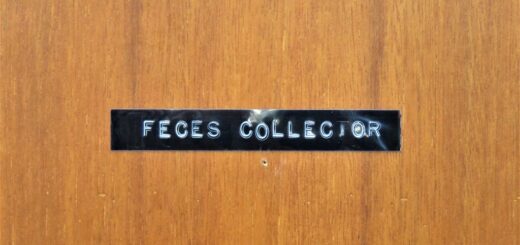A Taste for Expensive Things
How much would you pay for the most valuable thing in the world?
If you are a believer in the free market, you might immediately have noticed that the question is deceptive, as it implies that there is a “most valuable thing,” independent of your judgment of its worth to you, whereas all advocates of economic liberty understand that there is no value in anything unless there is a person who values it, which is to say that value is inherently subjective. Hence, “the most valuable thing in the world” is by definition that for which you would pay the greatest price.
My opening question, then, when clarified, might at first seem vacuous: “How much would you pay for that for which you would pay the most?”
Restated in this way, however, the question, though altered in its implications, becomes even more meaningful. For in this restated version, it is essentially asking, “How deeply do you value the thing you value most?” That is, how high a price would you pay for it? Where is your cut-off point? What, as it were, would be your final offer?
The question, so explicated, becomes a measure of the soul’s seriousness about its foci, or even more fundamentally a test of whether the soul has any focus at all, or simply emits random rays of diluted light in a hundred directions without differentiation. A soul thus diluted is one that would pay very little for “the most valuable thing,” for the simple reason that such a soul is unwilling to define its scale of relative value with any commitment or sincerity, so it is always hoping to hold something (almost everything, in fact) in reserve for “other priorities,” which in practice typically means for less essential goods with which one is nevertheless unwilling to part — physical pleasure, material ease, emotional comfort, self-satisfied normalcy, a tidy life, a “stable future.”
Perhaps, then, the question, “What would be your final offer?” is a test of whether your soul has established a hierarchy of goods, which means a rank order in which some things stand decidedly atop other things, such that you would willingly forego the many for the few, and more importantly, such that you would accept a mountain of hardships and pains — and not merely chosen ones, but also externally imposed ones — for the sake of those higher goods. For the chosen pains often amount to little but vanities, pretenses of “sacrifice” cited as reassuring proof that one really values something. It is the pains inflicted upon one that are the real test of will.
“What would you pay for the highest good?” means, in part, “How much burden — of self-denial, of self-discipline, of rejection, of failure, of ostracism, of mockery, of monumental error, of loneliness, of hatred, of condemnation — would you assume for the opportunity to chase that good?”
Not, I emphasize, for the certainty of tangible attainment, as one might forego a trip to Europe for a new car. And not, I emphasize further, as a one-time or transient struggle to be long-forgotten at the top of the climb, as years of scrimping on luxuries may add an aura of satisfaction-by-contrast to your new house. Rather, I mean how much essential burden would you accept as a permanent condition of the purchase, as a never-ending cycle of suffering for the sake of the mere chance to redeem those hardships in exchange for your highest good?
For the highest price is the one that can never be paid up, and the most valuable object the one for which you would pay the highest price with the fewest assurances.
As an example of what I do not mean: I am good at saving money, but that is primarily because I do not care much about material things, beyond a few minimal conveniences and relatively spartan comforts of modern life. Material comfort, as goods go, is fairly inexpensive for me, as I always tell students who speak of hoping to “get rich someday.” Wealth, in the grand economy of the soul, comes quite cheap. And the same holds for the entire range of material goods, for analogous reasons. The rich man is not he who earns the most, but rather he who desires the least.
On the contrary, it is the spiritual goods that cost the most in the end, partly because the material goods are so much easier to come by. The temptations of “the easy road” tend to be the greatest drain on one’s spiritual bank account — and this is as true of civilizations as it is of individuals. Furthermore, unlike material goods, the goods of the soul, precisely in proportion to their rarity, cannot be achieved merely by reducing or subduing one’s desire. That is, we become rich by caring less about wealth, and satisfied by caring less about pleasure; but we do not become wise by caring less about thought, just as we do not become moral by caring less about virtue. In these cases, the weaker the desire, the lower the possible achievement; the more we save, the less we have. But also in these cases, the stronger the desire, the greater the pain of failure. Again, the most valuable good is that for which we would give the most with the least assurance of satisfaction.
How much then, on these terms, would you pay for the most valuable thing in the world? In other words, do you have a taste for the truly expensive things?



